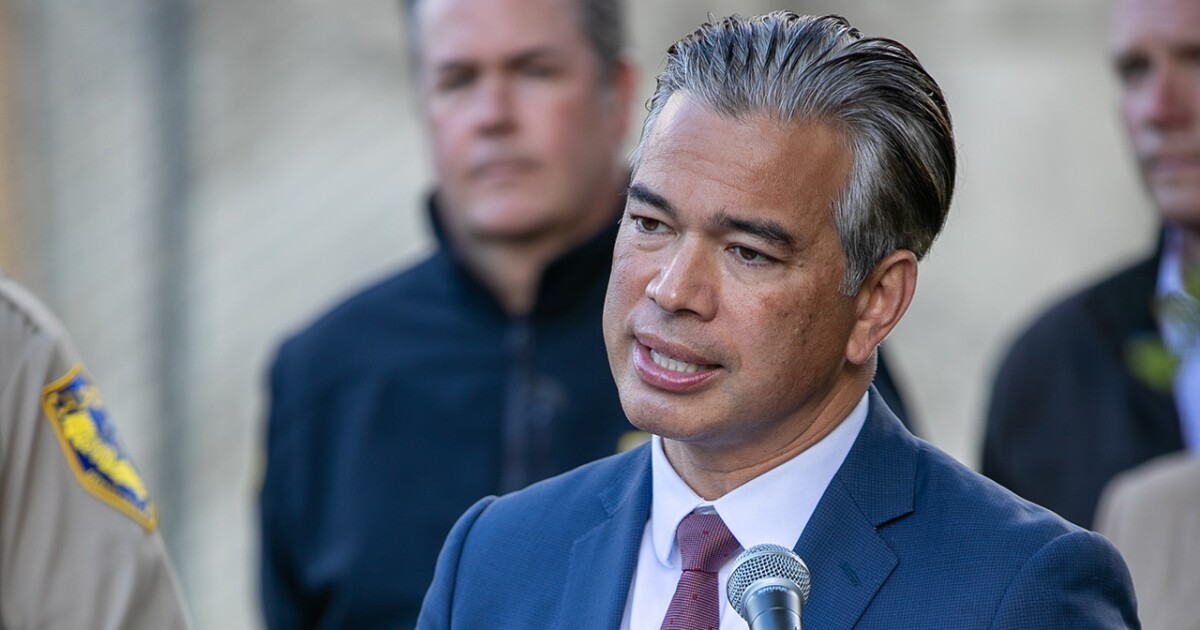California attorney general sues city for flouting state housing laws
4 min read
California Gov. Gavin Newsom and Attorney General Rob Bonta announced two lawsuits against the city of Huntington Beach for violating state housing laws during a Thursday press conference.
What follows may be a test case for recent state laws designed to lower the barriers to new housing construction. Housing’s high cost and low availability has become a major pinch point for California’s economy.
The Orange County beach city of 200,000 passed an ordinance last month blocking the processing of applications of accessory dwelling units, or so called “granny flats,” on single family home properties.
The city ordinance conflicts with Senate Bill 9, approved in 2021, which mandates a streamlined approval process for ADUs and splitting single family home lots in order to create more housing units.
“Huntington Beach is Exhibit A of what is wrong with housing in California,” Newsom said.
The state’s lawsuit includes a motion for preliminary injunction against Huntington Beach for violating state housing laws.
State law requires permitting agencies to approve or deny ADU applications “ministerially,” using objective standards, within 60 days. If it denies the application, it has to provide the property owner a list of remedies.
This is the second time in recent years that the state and the city have been at loggerheads over state laws created to speed up housing construction to combat the state’s affordable housing and homelessness crises.
It settled in 2020 with the state on a 2019 lawsuit brought by then-Attorney General Xavier Becerra over city leaders’ defiance of minimum affordable housing construction requirements.
“They lost the lawsuit in 2019, and they will lose again,” Newsom said.
California needs to build 2.5 million new homes by 2030, according to its housing plan, and is on track to build closer to 150,000, Bonta said.
The state’s housing and homelessness issues have continued, despite the state and cities issuing billions of dollars in bonds to try to ameliorate the problem. Nearly all of the money has gone to local governments, who have their own policies.
Recent state housing laws have attacked entitlement programs seen as roadblocks, in an effort to make it easier to build housing, in general, and affordable housing in particular.
They include the Housing Accountability Act, which requires cities to adopt a housing element of their general plan that allows enough housing to meet their share of regional growth targets.
Cities that fail to don’t receive approval of their plan from the state are subject to a “builder’s remedy” in which developers can bypass local zoning requirements for any project with a minimum percentage of affordable units.
Huntington Beach has introduced an ordinance to ignore the builder’s remedy, and Newsom and Bonta say they will challenge the city on that as well.
“No one gets to pick and choose the laws they follow,” Bonta said.
“You could have advocated against the laws when they were proposed,” Bonta said. “You can challenge the law in court, but you can’t throw the law out the window because you don’t want to follow it.”
Huntington Beach Mayor Tony Strickland and City Attorney Michael Gates held their own press conference Thursday afternoon to respond to the governor and attorney general.
“Neither the state nor the attorney general are serious about building more housing,” Strickland said. “Their desire is to urbanize single-family home communities. They are stripping charter cities of their ability to make their own decisions.”
Huntington Beach will “defend the city’s rights to enjoy the quality of life of this beach town,” Strickland said.
Strickland and Gates said the city is filing a suit in federal court challenging the state’s right on constitutional grounds to tell a charter city how to make planning and zoning decisions.
“If we don’t challenge the state, then it will be micromanaging and making every planning and zoning decision for us,” Gates said.
He added that the city does care about the affordable housing and homelessness issues, and recently completed a 170-bed homeless shelter, though he acknowledged that the city has 300 homeless people.
Bonta and Gustavo Velasquez, director of the California Department of Housing & Community Development, said they have sent the city a string of letters asking city leaders not to take the actions they were signaling they planned to take.
“The actions being taken by the Huntington Beach City Council should raise concerns with every resident in the city,” Velasquez said. “This is another blatant attempt to evade state housing law, denying private property owners’ rights to house aging family members or build income through accessory dwelling units, and preventing the development of affordable housing when it is needed more than ever.”
The governor’s press conference also featured comments from Ty Young, whose 82-year-old mother owns a home in Huntington Beach.
Young said he had taken out a $250,000 loan to build an ADU on his mother’s property, so he and his family can relocate to care for her. He was near the end of the process, and just needed the architectural drawings approved, when city leaders announced the ban.







